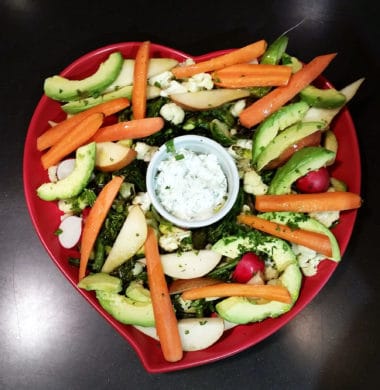Ways to Make Common Food Heart Healthy

When you’re working to live a heart-healthier life, there can be a lot to take into consideration, but one of the major things most doctors will suggest is an overhaul in your diet. Eating with your heart health in mind can make a big difference to your overall health and how you feel on a daily basis. If you’re not sure where to start, though, here are some ideas and quick swaps to help make most dishes a little healthier for your ticker.
Breakfast
The most important meal of the day, or so they say. Whether or not you agree with that nutrition philosophy, there’s no denying that starting your day off on the right nutritional foot can heavily impact how the rest of your days. If you’ve been feeling sluggish come mid-morning without the help of numerous trips to the office coffee machine, try some of these swaps. They’ll boost your energy and make your heart happy. Add chia seeds to your oatmeal for a boost of omega-3s, swap whole eggs for egg whites and kick that extra cholesterol to the curb. Adding fresh berries to your breakfast brings some detoxifying antioxidants to your first meal of the day, helping keep your hunger and blood sugar balanced throughout the morning.
Lunch
Give your midday meal a boost with avocado – packed with healthy fats and fresh flavor, this can be a creamy alternative to mayo on your sandwiches. We also recommend adding some leafy greens there. If you’re worried about bulk – skip the salad and just add a couple of handfuls of roasted kale to your lunches. It’ll help keep you full and add much-needed iron to help support heart health.
Dinner
When it comes to dinner, people often default to having it be the heaviest meal of the day. We actually recommend making lunch the heaviest meal of the day and pulling back for dinner, including lean protein and lots of veggies rather than piling on the carbs at the end of the day. Swap out that rice for quinoa with your stir-fry (and while you’re at it, try coconut aminos instead of soy sauce for a far lower-sodium option,) steer clear of red meat, instead focusing on lean proteins like salmon, chicken, and turkey. The more colorful you can make your plate at dinnertime, the better. Bell peppers, leafy greens (yeah, more of them!), carrots, sweet potatoes, beets, etc. all fill you up and support your heart’s health as well as the health of your body overall. Try to give yourself a couple of hours at least between dinner and when you go to bed so your body has time to properly digest and start to utilize the nutrients.
Snacks
Instead of tortilla chips or processed foods, reach for fresh fruit and veggies when the snack cravings kick in. Toss out the ranches and calorie-heavy, nutrient-light dips and grab a couple tubs of hummus instead. Make your own guacamole with a few simple ingredients and use it as a spread in place of soft cheeses. Kiss those pops goodbye and replace them with teas, seltzer waters, and kombucha (a tea-based probiotic drink that’s amazing for your gut!). Fit in healthy fats where you can and stock up on antioxidant-rich snackables and watch your cardiac health improve – as well as your overall health!
Helping get your heart back to its highest possible health levels isn’t always easy, and there’s rarely a golden ticket of heart health, but improving your diet with simple swaps and adding more veggies is a great place to start. If you’re having heart issues and aren’t sure where to start, contact us today.
- 9 Tips to Reduce Holiday Stress - December 11, 2025
- 6 Tips for Exercising Outdoors with a Heart Condition - May 19, 2025
- Lifestyle Changes That Can Help Manage Arrhythmia - April 30, 2025
Sign Up
As with any health concerns, your specific treatment program should be discussed thoroughly with your primary care physician as well as any specialists who may need to be consulted – like a cardiologist.
Sign Up
